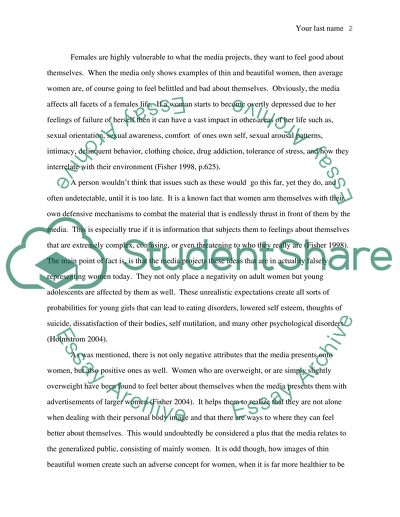Cite this document
(“Media effect on Women Essay Example | Topics and Well Written Essays - 1500 words”, n.d.)
Media effect on Women Essay Example | Topics and Well Written Essays - 1500 words. Retrieved from https://studentshare.org/miscellaneous/1528161-media-effect-on-women
Media effect on Women Essay Example | Topics and Well Written Essays - 1500 words. Retrieved from https://studentshare.org/miscellaneous/1528161-media-effect-on-women
(Media Effect on Women Essay Example | Topics and Well Written Essays - 1500 Words)
Media Effect on Women Essay Example | Topics and Well Written Essays - 1500 Words. https://studentshare.org/miscellaneous/1528161-media-effect-on-women.
Media Effect on Women Essay Example | Topics and Well Written Essays - 1500 Words. https://studentshare.org/miscellaneous/1528161-media-effect-on-women.
“Media Effect on Women Essay Example | Topics and Well Written Essays - 1500 Words”, n.d. https://studentshare.org/miscellaneous/1528161-media-effect-on-women.


